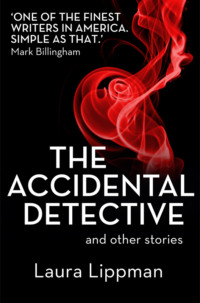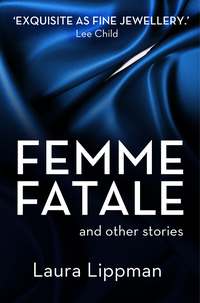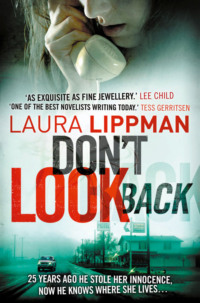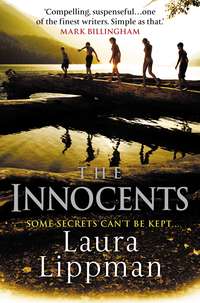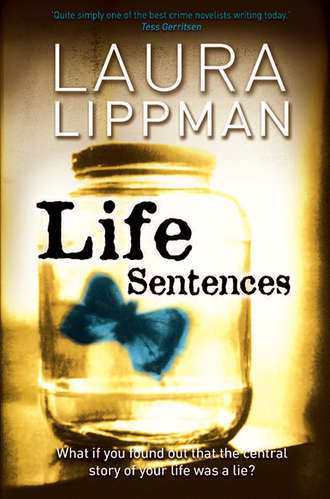
Полная версия
Life Sentences
‘And that’s a book?’ Her voice screeched a little on the last word, but the whoosh of the automatic doors provided cover. They were outside now, and the wind was cutting, carrying little pinpricks of rain that stabbed exposed skin. She had forgotten to put her gloves on and her hands ached. The medical experts hired by the other side during the arbitration said Teena’s Raynaud’s was coincidental, that she couldn’t prove it was a direct result of the accident. Small-framed women were prone to it, they said. Still, Teena never minded the cold before the accident.
‘Her name is Cassandra Fallows,’ Lenhardt said. ‘This writer, I mean.’ He had followed her to her car and she had a pang of embarrassment at its plainness. An out-and-out hooptie would have been less humiliating than this green, well-kept Mazda, which seemed to announce to the world how small and dull her life was. ‘On caller ID, she comes up as a New York area code. Begins with a nine at any rate. In case she does find you. Although I admit I tried, out of curiosity, and your number is unlisted, although your address comes up readily enough through the Motor Vehicle Administration. Not that she can get that without driving down to headquarters in Glen Burnie. Still, you know, if she’s even a half-assed researcher, she’ll be able to find your address. Unless—you own or rent?’
‘Own.’
He grimaced. ‘Well, that’s good—I mean, rent is just throwing money away—but that makes it easier to find a person. Sorry, now I sound like your father. I am a father now. A boy and a girl, Jason and Jessica.’
‘Congratulations.’ She meant it. Being a father, a parent, seemed miraculous to her. Anything normal did. But her mind wasn’t really on Lenhardt’s kids. A writer, doing a book. Every couple of years or so, back when the case was fresher, she would get a letter from a reporter, usually someone new at the Beacon-Light, an eager kid who had just stumbled over the story. She should have expected this, with the New Orleans case kicking up Calliope’s name, however briefly. She herself had started when she heard the news. But it had been so long since anyone had spoken of Callie to her. That was another reason not to attend cop parties. No back-in-the-day, no war stories.
‘Bye, Lenhardt. It was nice seeing you.’
‘Maybe our paths will cross again,’ he said.
‘Maybe,’ she said. Especially if you shop here regularly.
She drove home and, as it often happened, was shocked to find herself there fifteen minutes later, panicky to realize that she had driven so mindlessly. She had always been prone to zone out that way. It was part of the reason she almost never drank outside the house—at her size and weight, a generous glass of wine could edge her over the legal limit. Oh, it couldn’t make her drunk—based on her consumption of box wine, it took quite a lot to make her drunk—but who would believe that, should Teena Murphy be pulled over in her fancy clothes and plain car? They would expect her to be drunk. It would explain how she survived being her.
Pulling into her parking pad, she heard something—a branch cracking perhaps—and almost jumped out of her skin. The sound was the only memory she had, and she wasn’t even sure if that was true or something her brain had manufactured after the fact. But any kind of snapping, cracking noise threw her into a panic. She couldn’t be sure, but she believed that she hadn’t screamed until she heard the sound, all those breaking, snapping bones, like twigs under a giant’s foot. In her ears, it sounded like scoffing laughter, someone taunting her. Not that Calliope Jenkins had even smiled, much less laughed, in all the time she had tried to talk to her over the years. Still, Teena always believed she was laughing on the inside, delighted by her ability to play them all.
The accident happened a couple of months after they announced Callie Jenkins’s release. Now that was sheer coincidence. Teena had gone to pick up a woman, the mother of a kid who had just been charged in a homicide, and the woman freaked out. Teena had always prided herself on not making the mistake of going for her gun too early, something women police were faulted for. Small as she was, she could and would take a beat-down. But she was tired that morning—not drunk—and she had gone for her gun, and the woman had knocked it out of her hand, sent it skittering under the car. Teena had been groping, grasping for it when the car started to roll backward.
She let herself into the small, neat rowhouse she had purchased with her settlement from the car manufacturer, the deep pocket that had finally swallowed responsibility for her accident. Oh, they didn’t admit the parking brake was faulty, and they had done enough research, her FOP lawyer said, to know they could pretty much destroy her credibility in court. They just decided it was cheaper to settle and what was nothing to a big car company was more than enough to buy this house, in cash, on Chumleigh Road. Chumley! Now she remembered. She had watched that cartoon. She just forgot. She forgot a lot. She was forty-six years old and she could barely believe that she was once a little girl who had watched cartoons, who had decided she wanted to apply to the police academy because of Angie Dickinson in Police Woman.
‘She’s part of the gimp lineup, you know,’ her father would say, referring to the other popular television shows of the day. ‘There’s a guy in a wheelchair, a blind guy, and a fat guy. She’s a woman, and that’s handicap enough.’ He wasn’t being mean, and he certainly didn’t know he was being prophetic, that his daughter would one day join the gimp lineup twice over. Her father simply never understood why a pretty girl—and, although he never said it, a straight girl—would choose a career in the Baltimore City police department. Teena didn’t dare to say it out loud, but she believed she could be the first female chief in the department’s history, the first woman in the nation to lead a big-city police department. In the seventies, it wasn’t weird to believe that kind of shit. Strange, now that there really were women heading departments—in Des Moines; in Jackson, Mississippi—it seemed less probable to her. When she had joined homicide in 1986, she was the third female detective. Now, twenty-two years later, there were…two female detectives.
Teena lifted the box of wine from her trunk, favoring her right hand, and cradled it on the point of her hip, the way a woman might carry a baby. She would eat something—a frozen dinner from Trader Joe’s, soup and a sandwich—forestall the first glass of wine just long enough to prove that she could. She would wash her dishes, tidy up the kitchen. Then, and only then, she would board the train for Banrock Station, chugging past all the other little towns on the route, all the places she would never know or visit.
Chapter Seven
‘The Elizabeth Perlstein Library will go here, and the old library will be converted into more classroom space, which we can definitely use.’
Cassandra studied the blueprints with pretend interest. She was not very good at conceptualization and could not envision the future building. But the headmaster—a new one, his name quite gone from her head—was clearly excited about the addition to what had always been, frankly, a grotty little campus, one of Baltimore’s second-tier private schools, for those keeping score. Many were, as it turned out. Old-line Baltimoreans were geniuses at working a mention of Gilman, Friends, Bryn Mawr, Roland Park Country, Park School, even Boys’ Latin into some not really relevant anecdote. Some expressed surprise that the Gordon School was still around, assuming it had collapsed into the ashes of its own hippy-dippy good intentions. The school, however, had never been the Harrad Experiment/free love fiasco that was enshrined in the public imagination. It had been intellectually rigorous, owing as much to English boarding schools and St John’s College’s classics-based curriculum as it did to the open-space experiment. The famed liberality had been confined to its lack of a dress code and its no-grades policy, which had included creating essentially fake records for colleges. Gordon School had done extraordinarily well at placing its students before that latter practice was uncovered and outlawed. Luckily, Cassandra had already graduated from Princeton by then.
Whatever its flaws, the Gordon School had employed her uncredentialed mother as a lower-school math teacher. More crucially, it had offered Cassandra a scholarship for her last three years of high school. The combination of touchy-feely culture and exacting intellectual standards, but with no competition, had been perfect for a student of her temperament. She was genuinely thrilled for the chance to help the school now.
She was less happy about the ceaseless pressure to contribute more of her own money to the project. It was funny how wildly others misjudged her income. Most people thought she had much less than she did, because it was inconceivable to them that a writer could make money. But some, like the headmaster here at the Gordon School, had erred in the other direction, suggesting she might want to give at the ‘Diamond’ level, which started—started—at $100,000. God knows what kind of money was required to put one’s name on a building; Elizabeth Perlstein, class of ’88, was either one of those tech billionaires or married to one. Luckily, Cassandra had mastered the art of the graceful demurral, the ability to avoid the definitive no while never saying yes. Instead, she had waived her speaking fee, which was considerable, and persuaded her father to join her on the stage here for a fund-raiser, in which she would lead him, for the first time ever, through a public discussion of what had happened to him in the ’68 riots. Tickets to the talk alone were $50 and there was a private dinner for those willing to pay $250. The school stood to raise almost $50,000 from the event. Not Diamond level, but Platinum, and more than good enough by Cassandra’s estimation.
‘We feel so lucky to have you,’ the headmaster said. ‘We thought the University of Baltimore symposium would have snapped you up.’
‘Oh, this is so much more meaningful to me,’ Cassandra said. The fact was, the University of Baltimore had not even contacted her, nor had they asked her father to contribute an oral history to its extensive Web-based archive. She had been hurt by this omission, but not surprised, for there had been a small backlash against My Father’s Daughter once it found commercial success. The critical talking point, first advanced by a so-so lesbian African-American novelist, was that Cassandra had usurped a major political event and turned it into—she knew the words by heart—a story about a white girl’s birthday party, ruined by the assassination of Dr Martin Luther King, wah-wah-wah. The words had rankled, but Cassandra hadn’t been foolish enough to respond. Still, in quiet moments, when that stinging criticism came back to her, she argued in her head with her nemesis, a one-book wonder rumored to owe at least three books to three different publishers. Don’t write me out of history. You, of all people, should know what it’s like to be silenced, to be told that you have no role—because of race, because of gender, because of sexuality. My story is my story. And my father—complicated, less than admirable man that he was—saved a woman’s life that day. Yes, her pillow had received those words many times over.
But this was only the fortieth anniversary. Perhaps by the fiftieth, they would be included. Fifty, ten years from now. Caught off guard by the realization that she was now at an age where, actuarially, she could not presume her father would be with her ten years in the future, Cassandra missed some point the headmaster was making. She smiled and nodded. Smiles and nods covered a multitude of oversights.
‘Pedant,’ Ric Fallows said a few hours later, after listening to her account of the meeting.
It was one of his favorite words, his all-purpose condemnation. Pedant, pedantic, pedantry, pederast, the last of which he seemed to use interchangeably with pedant, although he clearly knew better. The irony, of course, was that Cedric Fallows was far more pedantic, in the literal sense of the word, than those he labeled.
The pedant of the day was a neighbor here at Broadmead who had the temerity to complain about Mr Fallows sitting on his patio in his bathrobe. And nothing else. Given the retirement community’s village-like aspect, with garden apartments built around shared courtyards, he could be glimpsed by his neighbors in deshabille.
‘Only if they’re looking,’ he pointed out when Cassandra raised the issue.
‘Well,’ Cassandra said, ‘apparently they are. And they can live with the bathrobe. Just not the lack of anything beneath.’
‘That was last summer. Why bring it up now?’
‘Because spring is icumen in,’ she trilled. ‘Lhude sang the cuccu in his bathrobe.’
He smiled. ‘It’s summer that’s icumen in. And your Middle English is deplorable.’
But she had played his game, used a learned reference to lighten a tense moment. She could let the subject drop, move on to a discussion of their upcoming appearance at the Gordon School.
‘I’m not sure I want to go,’ he said, surprising her. She thought her father would be dying for this bit of recognition. He had never had the academic career he envisioned, never published the big book in his head, the one he thought would change the way people read myths. ‘Fuck Joseph Campbell,’ he blurted out from time to time. Cassandra still wasn’t sure if he saw Campbell as the usurper of his ideas or the antithesis of what he had hoped to say.
‘We’re committed,’ she said nervously, thinking of those blueprints, the advance ticket sales. ‘They’ve advertised—’
‘Oh, I’ll be there, if I must. But why can’t you tell it, as you did in your book?’
‘Because it’s your story.’
‘It was. Somehow it became yours.’
She weighed what he was saying. A complaint? An acknowledgment of a literal truth? Or something in between?
Yet her father had always seemed proud of her book. She remembered the first local signing, the one where no one had come, in a struggling independent in downtown Baltimore. Cassandra didn’t have many friends left in the city. Her friends were from college, her years in New York. In New York, at her first-ever publication party, the bookstore had been full of friends and publishing types, and there had been a dinner afterward in a restaurant. In Baltimore, where the publicist had assumed she would be championed as a hometown girl made good, there were exactly five people: her father and Annie, her mother and her mother’s best friend, and a woman who had clearly misunderstood the thrust of the book, believing it a history of the civil rights movement in Baltimore. The evening was notable, however, for it marked the first time since Cassandra’s high school graduation that her parents and Annie had been in the same room. (A midyear graduate from college, she hadn’t bothered to walk, just packed up her things and gone straight to a sublet on the Lower East Side, back when the Lower East Side was still the Lower East Side.)
She had been nervous that night, reading in front of her parents. And Annie. The section she had earmarked for bookstore appearances suddenly seemed inappropriate, centering as it did on her attempt to re-create the moment her father met Annie. Her parents had raised her to be direct and down-to-earth about sex, but did that apply to their own sex lives? Her mother had explained the biology of the matter to her when she was eight, while her father had spent his life instructing her in the more indefinable nature of desire. She had been six or seven when her father had pointed out a woman near the Konstant Kandy stand in Lexington Market. ‘That woman,’ he said, gesturing with the spoon from his ice cream, ‘has a magnificent ass. In Portnoy’s Complaint, Philip Roth compared such an ass to a peach, or maybe it was a nectarine, but that’s a little flat-footed for me. What do you think? A cello, perhaps, or an amaryllis bulb, with the backbone stretching up like the stem, the head the flower?’ No, the timing was off, for Roth’s book certainly wasn’t around when she was six. In fact, she remembered seeing its yellow cover on her father’s nightstand, in the apartment he shared with Annie, and thinking, He says he’s too strapped to get me new shoes, yet he buys himself hardcover books. But her father considered books as essential as food. He would have been baffled if anyone suggested not buying the book he wanted the moment he wanted it. Besides, her father’s library was a gold mine for a dirty-minded girl. Cassandra had read Roth and Updike and Mailer. She read Candy, although she didn’t understand it until she read Voltaire in a college lit class. Her father’s contemporary books, much more than his library of classics, prepared her well for the world she entered. The books didn’t stop her from having a stupid affair with one of her college professors, but they armed her with the information that the professor didn’t have as much power as a young woman might assume.
For all of Cassandra’s hard-earned literary sophistication, she could not read the passage about her father and Annie in front of them. Or, for God’s sake, her mother and her friend, starchy Lillian. She read from the prologue instead, but she wasn’t prepared, and she tripped over words as if she had never seen them before. Later, her father and Annie took her to Tio Pepe’s—had they won or lost the coin toss? Cassandra wondered wryly—and her father tried to suggest that Lillian was a repressed lesbian who had been in love with Lennie for years, but even Annie found that ridiculous. ‘Oh, Ric,’ she said with a fluttering sigh, and he looked at her as if he could not believe she was his.
How sweet it had been, three years later, to return to Baltimore and speak in an auditorium at the Pratt library, the room brimming with people who had discovered the book in paperback. Women from reading clubs, in the main, but also some much younger girls, those who had their own problematic fathers, and even a few older men, the type who had studied her author photo a little too closely and thought they might help her with her daddy issues, whether they admitted that to themselves or not.
She wondered now if her father, despite all his years in classrooms, had a touch of stage fright.
‘You’re not nervous, are you?’
‘When have I ever been nervous to face an audience?’ he shot back. ‘Besides, you do all the work, right? You’re going to ask the questions, and I’m going to answer.’
‘Well, they bill it as a conversation. It wouldn’t be wrong if you had a few questions for me.’ Her voice caught; she had stumbled into an old psychic tar pit, her father’s incuriosity about her life. Cassandra knew the various ways her father might describe a woman’s ass, but he wasn’t sure what either of her husbands had done for a living. Ah, but if she had pressed him on it, he would have said, ‘Well, neither one stuck around.’
‘Sure, sure,’ he said now. ‘I’ll lob you a few softballs.’
‘And you’ll talk about Annie?’ Probing, careful.
‘What do you mean?’
‘About meeting her, the circumstances.’
‘If need be. But, you know, it doesn’t matter—’
‘Of course it matters.’
‘I didn’t need a riot. I would have met her some way, somehow. Annie was my destiny.’
That had always been the rationalization, but there was no doubt that her father had come to believe it. He hadn’t cheated on her mother; he had encountered his destiny and he knew enough not to defy the Oracle of Delphi. Yet her father didn’t acknowledge destiny in any other aspect of his life.
It was hard, trying to come to terms with the fact that her father had such a huge and ruling passion, much larger than any Cassandra had ever known. Sure, she knew what it was like to be swept away in the early part of a love affair, but she was amazed by those people who never seemed to abandon that wildness, that craziness. Would it have been easier if her father’s passion had been for her mother, or more difficult? In some ways, she was glad that her father’s big love was for someone other than her mother, because she at least had her mother to keep her company. Around her father and Annie, she had been lonely, the odd girl out. Especially as a teenager, she couldn’t help feeling that they spent their time with her wishing she would go away so they could have more sex. Of course, teenagers think the whole world is sex, all the time. But even now, as an adult with two marriages behind her, Cassandra still believed that her father’s sexual passion with Annie had an unusually long life span. If Annie left a room for even a moment, her father looked lost. When she returned, the relief that swept over his face was almost painful to see. He was crazy about her. That’s the kind of line her father would have red-lined in an essay as vague, imprecise, and overwrought. Yet it was true in his case. And Cassandra didn’t have a clue why.
Annie was beautiful, yes, the mild flaws of her face—the space between the front teeth, the apple roundness, the heavy brows that she never tended—balancing out the cartoonish perfection of her body. Sweet, too. Not unintelligent. But not sharp. This, more than anything, had bothered Cassandra, then and now. If her father, for all his snobbery, could choose a woman of ordinary intelligence, then what were the implications for his daughter? After an exceedingly awkward adolescence, Cassandra had grown into a reasonably attractive woman. Not necessarily pretty but sexy and appealing. Yet whenever she visited her father, she was reminded that the qualities that her father had taught her to value—intelligence, quickness—had nothing to do with the woman he declared the love of his life. The test of a first-rate mind, her father often said, quoting F. Scott Fitzgerald, was to hold two opposing thoughts simultaneously without going insane. Cassandra looked at herself, she looked at Annie, and she concluded that her father had a first-rate mind.
‘Time for dinner,’ her father said. Although his apartment had a kitchen, he took his meals in the community dining room, but he always insisted on a cocktail before dinner. He seemed a little shaky getting out of his chair, and Cassandra reached a hand out to him.
‘I’m fine,’ he snapped. ‘Just a little light-headed from that expensive gin you insist on giving me. It has a much higher alcohol content.’
He had used his own gin and made his drink to his exacting specifications, but never mind.
‘Come on, Dad,’ Cassandra said. ‘We’ll climb the hill together.’
He smiled, pleased by the allusion to one of his favorite poems. ‘But I’ll beat you down.’
Tottering down
Dickey Hill Elementary, school number 201, new in the fall of 1966, opened in utter chaos. I stood in the hallway near the principal’s office, willing myself not to reach for my father’s hand. Just five minutes ago, I had shaken his hand off as he walked me to school, a rare treat. We had been climbing the hill past the Wakefield Apartments, prompting, inevitably, a recitation of ‘John Anderson, My Jo’. In a Scottish accent, no less.
John Anderson, my jo, John, We clamb the hill thegither; And monie a canty day, John, We’ve had wi’ ane anither: Now we maun totter down, John, But hand in hand we’ll go, And sleep thegither at the foot, John Anderson, my jo.
It was the first time I felt a twinge of embarrassment at my father’s behavior. Fleeting, to be sure—I was still years away from the moment when everything about one’s parents becomes unbearable, when the simple act of my mother speaking, in the car, with no one else there to hear, could make me cringe—but I remember speeding up a little so the students arriving by car and bus might not associate me with this odd man.


